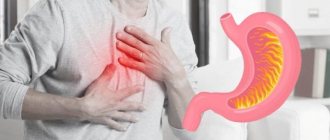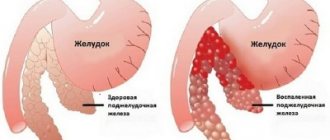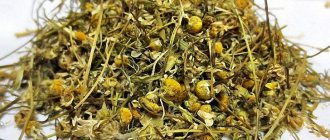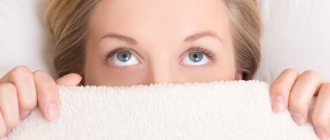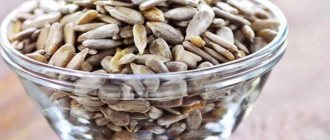The concept of "menopause"
Menopause occurs after 45 years and does not require treatment, as it is a normal physiological process. But such a condition is always accompanied by unpleasant symptoms, the severity of which depends on various factors.
Menopause is caused by a change in hormonal levels, during which there is no menstruation and the woman is unable to conceive children. This period can occur after 45 years, but is most often observed in women over 50 years of age.
Experts distinguish between natural and artificial menopause. In the first case, it goes away due to changes in hormone levels. Artificial occurs after surgery to remove the internal genital organs in women due to the occurrence of cysts and other neoplasms.
The main symptoms of menopause
Menopause - or menopause - is associated with a decrease in the ovarian synthesis of female hormones estrogen , which are responsible for reproductive function. This perturbation radically changes the general condition of the woman.
Causes of insomnia
The causes of insomnia during menopause can be very diverse. But they are divided into 2 groups: psychological and hormonal.
The main reason for sleep disturbances during menopause is hormonal changes in the body. During menopause, the production of female hormones in the body decreases, affecting the physiological health of the fair sex: progesterone and estrogen.
As hormonal levels decrease, the absorption of magnesium in the body, a microelement that affects muscle relaxation, occurs.
The lack of the required amount of estrogen in the body of a mature woman provokes sweating and night hot flashes. And a decrease in progesterone levels causes persistent insomnia, so sleep disturbance and menopause are constant companions of the fair sex after 50 years.
The main cause of insomnia during menopause is a decrease in the production of progesterone and estrogen.
Also, insomnia during menopause is caused by a woman’s depressed state. The following factors can aggravate the condition:
- obesity;
- minimum physical activity;
- high blood pressure;
- alcohol, smoking or drugs;
- drinking coffee in large quantities.
Causes of sleep disturbance during menopause
The main cause of sleep disturbance during menopause is hormonal changes in the body , as a result of which the synthesis of the sleep hormone melatonin .
This process is aggravated by other reasons that are integral signs of menopause:
- tides _ A feeling of intense heat , a “rush” of blood to the head and neck, accompanied by increased sweating, which often occurs at night. It is often replaced by headache and tachycardia.
- a state of nervousness , heightened emotionality, when every little thing is dramatized, can cause resentment, depression, drives you crazy and literally brings you to tears. It intensifies before bedtime with memories of the failures of the passing day.
- frequent urge to urinate . This is due to decreased functionality and dryness of the mucous membrane of the genital and urinary organs. This results in itching, burning, discomfort, and frequent night urination. All this is not conducive to deep and restful sleep.
Such deviations do not allow a woman to fully rest at night. This affects her condition during the day, causing fatigue and irritability. A woman constantly wants to sleep, but daytime rest is usually impossible due to work commitments.
IMPORTANT! Insomnia cannot be ignored, since it is often impossible to overcome this condition on your own. To prevent the process from deepening, qualified treatment is necessary.
Secondary causes of insomnia
Excess coffee can also be one of the causes of insomnia.
Insomnia in menopausal women can be caused by other factors:
- Diseases and conditions. Sleep apnea, arthritis, chronic headaches, asthma, hyperthyroidism, heartburn, in addition to physical symptoms, provoke panic and anxiety, and increase cortisol levels.
- Medicines. Medicines for asthma, allergies, and arterial hypertension (beta blockers) have sleep problems as side effects.
- Active ingredients and stimulants: Caffeine, nicotine, and alcohol disrupt sleep in a variety of ways. Drinking to excess can disrupt your circadian rhythm and cause you to wake up in the middle of the night.
- Social issues such as children moving out of the house, caring for parents, relationship and career problems, and stress all contribute to the release of cortisol, exhaustion. A decrease in estrogen along with an increase in the stress hormone causes insomnia.
Drugs
Medications should only be taken after consultation with a doctor.
Gynodian Depot
This is a combined estrogen substitute that is sold as an injection solution. One intramuscular injection of the drug per month is sufficient. The medicine is effectively used for the treatment of asthenic phenomena, atrophy of the urinary system and skin complications that occur during menopause. The product also quickly normalizes sleep.
Proginova
This is a hormonal tablet medication that is effective for early menopause. The medicine effectively fights hot flashes and increased sweating, normalizes sleep, eliminates neuroses, headaches and dizziness.
The drug is indicated after resection of the ovaries or their irradiation. Active substances can cure and prevent the development of osteoporosis. You need to take the product for 3 weeks, and then need a break of 7 days.
Premarin
This is a tablet form of medication with estrogen.
The composition indicated for the elimination of vasomotor disorders during menopause:
- sweating;
- insomnia;
- anxiety states;
- night tides.
The drug is useful for osteoporosis; its substances reduce the risk of developing cardiovascular disorders and intestinal cancer. The medicine is well tolerated by patients and can be taken in courses intermittently or continuously.
Angelique
This remedy neutralizes the effects of estrogen deficiency.
After completing the course, the following symptoms can be eliminated:
- tides;
- increased sweating;
- insomnia;
- disturbance of psycho-emotional state;
- cardiac pathologies.
The effect of the drug is to improve the functioning of the musculoskeletal system, and the composition effectively combats the structure of the skin, atrophic cystitis, urinary incontinence and vaginal dryness. You need to take 1 tablet per day.
Klimonorm
For those who do not know how to deal with insomnia, this remedy was developed. It is used for the treatment of menopausal disorders.
Action provided:
- increases bone density;
- reduces the risk of fractures;
- has a positive effect on the functioning of the heart and blood vessels;
- improves skin condition.
In addition, the product reduces symptoms of stress, improves mood and normalizes sleep. The composition is well tolerated and does not lead to weight gain, while reducing cholesterol levels. The medicine is produced in the form of pills, the daily dose is 1 piece.
Signs of sleep disturbance
Insomnia during menopause manifests itself individually in each woman. It often manifests itself as difficulty falling asleep and daytime drowsiness. Patients often wake up at night as a result of the urge to urinate. Snoring and sleep apnea also appear.
When waking up, panic attacks and anxiety often occur. Attacks of sleepwalking are common not only at night, but also during daytime sleep.
Insomnia during menopause may not always manifest itself as a complete lack of sleep. Most often it manifests itself in difficulties falling asleep and frequent awakenings, which does not allow you to get a full night's sleep.
But not all women over 45 suffer from insomnia during menopause. Many people don't even realize that they wake up at night. In the morning they do not feel lack of sleep or fatigue.
Why and when to sound the alarm
Insomnia during menopause can occur constantly or occasionally. You should seek help from a specialist if you have not had a full night's rest for more than 7 days. Treatment is necessary, since it is during sleep that all human systems and organs, strength are restored, and substances responsible for the full functioning of the immune system are produced.
If you let a problem take its course and do not find the right solution in time, there is a risk of developing the following complications:
- gastritis;
- inflammation of the pancreas;
- depression, neuroses, personality changes;
- stroke and other malfunctions of the cardiovascular system;
- disturbances in the functioning of the endocrine system up to the formation of oncogenic tumors.
If you suffer from insomnia during menopause, what to do in such a situation is decided by the doctor. Contacting a specialist is mandatory; you cannot solve the problem yourself.
The doctor may prescribe a visit to a psychologist, the use of medications or homeopathic drugs, and give recommendations for lifestyle correction. Proper treatment will help you survive menopause with ease and without harm to your health.
Why insomnia needs to be treated
Lack of melatonin and lack of normal sleep at night leads to many unpleasant consequences. The nervous and immune systems weaken , which leaves a noticeable imprint on everyday life. Attention and coordination of movements are impaired, constant drowsiness makes it difficult to concentrate on something for a long time. This is especially noticeable in older people, because... a young body is stronger and is able to survive in difficult conditions for a long time. Older people are often weakened and are most at risk of developing serious illnesses.
This poses a particular danger when driving, which is why people suffering from insomnia often get into accidents. At work, due to inattention and fatigue, problems with labor productivity may arise, which may even lead to dismissal.
In addition to purely social factors, insomnia has an impact on health. The risk of heart attacks, hypertension and strokes increases, immunity decreases, which makes it much easier to get any serious illness and also difficult to endure. The likelihood of diabetes and uncontrolled weight gain increases.
It is recommended to pay special attention to apnea, since, against the background of other ailments associated with the heart and blood vessels, there is a high risk of sudden death during sleep.
What to do for insomnia during menopause: medications, folk remedies, reviews
For many women, hormonal therapy is contraindicated due to side effects of the drugs or the existence of a hereditary predisposition to cancer.
There are medications that do not contain hormones, but can also reduce hot flashes and other unwanted symptoms of menopause.
Warning: Just like hormonal drugs, they can only be used as prescribed by a doctor in compliance with the prescribed dosage and dosage regimen.
Such drugs include:
- antidepressants;
- anticonvulsants (antiepileptics);
- hypotensive (lowering blood pressure);
- antispasmodics;
- sedatives (calming effect);
- herbal medicines containing phytoestrogens, homeopathic remedies and dietary supplements.
Antidepressants
These remedies not only help fight depression, eliminate anxiety, irritability, and insomnia, but also improve the condition of blood vessels. Therefore, during severe menopause, they are used to get rid of frequent and prolonged hot flashes, accompanied by profuse sweating.
Addition: When treating with such drugs, you should not drink alcohol, as the body’s reaction can be unpredictable (mental disorders, heart attacks, and death are possible). Other drugs can be used simultaneously with them only under the supervision of a doctor.
Antidepressants such as efevelon, velaxin (the active ingredient is venlafaxine), fluval, Prozac (based on fluoxetine), as well as adepress, rexetine (the main ingredient is paroxetine) are used.
Gabagamma, catena, convalis are used (the active ingredient is gabapentin). By relaxing blood vessels and muscles, they improve blood flow, which regulates body temperature. This helps reduce the frequency and strength of hot flashes. Such drugs are taken only under the supervision of a doctor for an individually prescribed period.
During menopause, the load on blood vessels increases. Due to a lack of hormones, their walls become thinner. Stress and increased nervousness cause either spasms or vasodilation. Reducing pressure makes their work easier, therefore, improves thermoregulation, which helps reduce hot flashes and reduce sweating.
For this purpose, Enap, enalapril, and captopril are usually used. Women prone to hypertension who experience severe hot flashes are prescribed constant use of such drugs during menopause.
Antispasmodics
They have the ability to ease spasms of blood vessels and muscles, help lower blood pressure, and improve heart function. Drugs such as no-spa and papaverine are used.
They are used to get rid of nervous tension, feelings of fear, and irritation. They help improve sleep. Validol, valerian, and motherwort can be taken as such remedies.
Dill water helps relieve negative symptoms of menopause, reduce the number of hot flashes and normalize sleep. To prepare it, you need to pour 3 tablespoons of dry dill seeds with half a liter of boiling water and let it brew for one hour in a thermos. After this, the composition must be diluted with water, bringing it to one liter. Take 100 ml 3-4 times a day, 30 minutes after meals. The course of treatment is 3-4 weeks.
Results: according to reviews, hot flashes are reduced by 50% after just 2 weeks of regularly taking dill seed infusion. And after a month, the number of hot flashes is reduced by 10 times.
Attention! Dill seeds contain substances that increase the tone of the uterus, which can be dangerous during pregnancy. Pregnancy during menopause is possible, especially since women at this age do not lose sexual activity, but take contraceptives lightly, considering conception to be unlikely
Dill is also contraindicated for people with blood pressure changes and can be dangerous for people with low blood pressure.
Treatment of insomnia that occurs during menopause is possible without the use of sleeping pills. Traditional medicine has in its arsenal a huge number of recipes that will help eliminate an unpleasant symptom without harm to the body. And this applies not only to decoctions or infusions based on medicinal herbs, but also to alcoholic extracts of medicinal plants.
What folk remedies for insomnia during menopause can be used? Below are several effective recipes that will help you forget about the unpleasant symptom of menopause.
Motherwort
Motherwort is a medicinal herb that has a sedative, hypnotic, and hypotensive effect. To eliminate insomnia during menopause, you can make either decoctions or infusions from it, or take it in the form of an alcohol extract. The tincture can be purchased at any pharmacy, it costs approximately 25 rubles.
To prepare the medicine you need 1 tbsp. l. Brew dry leaves of the plant with a glass of boiling water and leave covered for a quarter of an hour. Then strain the finished medicine, squeeze out the cake, and if necessary, bring the infusion to its original volume with boiled water.
How to combat insomnia during menopause using this folk remedy? The infusion should be taken 1 tablespoon three times a day. The course of treatment can be continued for several weeks, after which you can take a ten-day break, and then, if necessary, you can resume taking motherwort infusion.
With drops everything is simpler. The finished alcoholic extract is drunk 15-20 drops before meals. Reception can be done in the morning and evening.
Valerian
If a woman does not know what to do with sleep disorders during menopause, then valerian can help get rid of the problem. This is a medicinal herb that has a depressant effect on the central nervous system, due to which a sedative and hypnotic effect is achieved.
It is recommended to prepare a decoction from the roots of valerian. To do this, you need to pour 1 heaped spoon of chopped roots or rhizomes of the plant with 2 cups of boiling water and put on low heat. Boil the mixture for 7 minutes, then remove from heat, cool and filter. Take the prepared decoction, one third of a glass, 2 – 3 times a day.
The tincture of this medicinal herb is drunk 20 drops 2 – 3 times a day. Tablets – 2 pieces at a time. The frequency of application is identical to that described above.
Peony tincture
Peony is a truly miraculous plant that is used in many areas of medicine. Neurology and gynecology are no exception.
The tincture of this plant is especially necessary for women during menopause, since under the influence of this herb normalization of sleep occurs, stabilization of the psycho-emotional state, and improvement of the functioning of the endocrine system. Moreover, peony has a beneficial effect on hormone balance, preventing hot flashes and hormonal surges.
But it should be remembered that this plant is poisonous, so it is extremely important to strictly adhere to the dosage of the alcohol extract. It is 30 drops per day.
The drug is taken after meals, preferably before bedtime. You can continue treating insomnia during menopause with peony tincture for no longer than a month, after which you must take a ten-day break, and then, if necessary, start taking the medicine again.
It is very useful to make different herbal infusions from several types of medicinal plants. They are much more effective in helping to combat sleep disorders, irritability and other unpleasant symptoms that trouble women during menopause. The recipe for one of these medicines is given below.
It is necessary to mix lemon balm leaves, peppermint leaves and chamomile flowers in equal proportions. Pour a tablespoon of the mixture into a glass of boiling water, then leave for half an hour under the lid. The result is not even an infusion, but an aromatic and tasty tea, which you need to drink in one sitting, after carefully straining it. You can drink this drink twice a day - morning and evening.
A combination of folk remedies or sleeping pills with aromatherapy, meditation, massage, and relaxing baths is very useful. You can do such procedures every day, alternating them with each other. This will make it much easier to deal with insomnia and irritation during menopause.
The article was checked by an expert - practicing family doctor Elizaveta Anatolyevna Krizhanovskaya.
Should I see a doctor?
You can independently recognize the pathology by assessing all the existing signs and your well-being.
In mild forms of insomnia, when its manifestations occur from time to time, you can cope with the disease at home.
To do this, you need to adjust your daily routine and diet, avoid stress, and accustom yourself to a moderately active lifestyle.
If the problem is permanent, insomnia causes a woman significant discomfort, worsens her well-being, and causes real damage to her health, it is necessary to seek help from a specialist as soon as possible.
Who treats insomnia
Which doctor treats insomnia? As a rule, this is a neurologist, since the problem often arises due to neurological disorders. Well, the answer to the question of where insomnia is treated is known to everyone - it is a district or private clinic. In the first case, it makes sense to contact the reception desk, whose staff will first of all refer the patient to a local physician. And only after the doctor, having examined the patient, writes out a referral, can you go to an appointment with a neurologist.
If this scheme does not suit you, there is another way, shorter, but not free. This is a private office or clinic. In such institutions, you can make an appointment with the right specialist even by telephone. Moreover, the patient, already exhausted by insomnia, will be spared from standing in line.
Diagnostic methods
If symptoms of pathology appear, you should consult a doctor - somnologist, psychotherapist.
Making a diagnosis includes several stages:
- Conversation with the patient , during which the doctor determines the existing reasons, complaints and other important circumstances. Most often, an accurate diagnosis is made on the basis of anamnesis, but if there is any doubt, a more detailed examination is necessary.
- Laboratory tests , in particular, a blood test that determines the level of female sex hormones.
- Hardware diagnostics . A small device is attached to the wrist, with which a woman can move and sleep freely. The device records various disorders that can cause the development of the disease (snoring, anxiety, bruxism).
- Somnography . The patient spends the night in a specialized room under a special device that records various indicators during sleep. These are the duration of various phases, brain activity, heart rate, blood pressure levels, muscle tension, eye movement, and blood oxygen levels.
Methods to combat insomnia
Various methods are used to relieve sleep disturbances during menopause. In severe cases, medications are prescribed. But if insomnia is not pronounced, you can use other methods, for example, folk recipes. It is also important to change your lifestyle.
Half measures
Most women entering menopause experience bouts of insomnia. At the same time, sleep disturbances associated with hormonal changes can last for weeks, or even months, and ultimately have a negative impact on overall health. Take advantage of all available opportunities to give your body a rest:
- Take a nap.
It's not always possible to rest your head on the desk in the office, but who can say no to a little sleep during lunch? Try resting in a comfortable position with your eyes closed any time you feel tired - Drink water.
If you are very tired, drink a glass of water. It helps conserve natural energy - Listen to your body
. As we age, our internal clocks change. You may no longer be able to stay up late and wake up early the way you used to. Revise your daily routine as your body requires.
Treatment of insomnia with medications
With the onset of menopause, even minor sleep disturbances can seriously worsen the quality of life of a representative of the fair sex. To restore proper sleep, it is necessary to eliminate the cause of the disease - the level of hormones. Hormone replacement drugs have proven themselves to be effective. But you cannot take pills, even previously tested ones, without consulting a doctor.
Hormonal drugs containing estrogens include:
- Remens;
- Feminal;
- Klimadinon;
- Qi-Clim.
Medicines containing the hormone melatonin are also prescribed: Yucalin, Melaxen Balance or Circadin.
A woman who has entered menopause can take hormones for no more than 30 days, and the medications have a number of contraindications:
- Oncological processes in the body;
- Autoimmune diseases;
- Serious kidney disease;
- Diabetes.
Under no circumstances should you prescribe hormone-dependent therapy on your own. The course of treatment is prescribed by the doctor after conducting a diagnostic examination of the patient. The dosage of hormonal drugs and the duration of treatment are selected individually in each case.
If hormone-dependent therapy does not help restore proper sleep, the doctor may recommend that the woman take medications that have a hypnotic effect.
A representative of the fairer sex should not perceive sleep disturbance during menopause as a tragic process. Naturally, insomnia has a serious impact on a woman’s health and well-being, and not everyone knows what to do in this case.
But strong feelings and negative perceptions of the signs accompanying menopause aggravate the painful sensations. To alleviate a woman’s condition, you need not to focus on the signs of menopause, but try to lead a fulfilling lifestyle.
Preparations with phytoestrogens
The properties of phytoestrogens are very similar in chemical structure to estrogens. Moreover, they are not hormones, but they effectively affect the female body and can eliminate many menopausal symptoms.
Products containing phytoestrogens are prescribed as an alternative to hormones or to women for whom hormone replacement therapy is contraindicated.
As an alternative to hormones, a remedy such as Cleverol, a phytoestrogen that eliminates the symptoms of menopause, can be used. The active ingredient is red clover extract. The components of the drug effectively eliminate not only insomnia, but also other symptoms of menopause, and also prevent the development of cancer. Cleverol is very convenient to use: to eliminate symptoms, you only need to take a capsule once a day.
Traditional treatment
Among folk recipes, decoctions of soothing plants are often used to improve sleep during menopause. These can be valerian roots, motherwort herb, mint or lemon balm leaves, thyme. For those who do not have time to brew and infuse herbs, pharmacies have a wide selection of tinctures and other preparations based on the listed plants.
One of the simplest and most useful methods for eliminating insomnia is brewing herbal tea. For example, if you brew half a tablespoon of dry mint leaves in 200 ml of boiling water and leave for 15 minutes, you can get a good soothing drink. It is recommended to drink it in the second half of the day to prepare the body for quality sleep.
There is another old recipe - baked milk with honey. A glass of warm drink should be drunk shortly before bed.
Essential oils will help you get into the mood for sleep. Thus, the smell of lavender or mint helps to relax the body: the oil can be added to a warm bath or to an aroma lamp.
Herbal treatment
To make it easier to fall asleep, it is recommended to prepare herbal teas, which may consist of one or more medicinal components:
- hawthorn berries;
- motherwort grass;
- leaves of thyme, lemon balm, mint;
- valerian rhizomes;
- shepherd's purse grass.
In addition, for insomnia during menopause, you can pay attention to the following folk recipes:
- Brew 200 ml of boiling water 1 tbsp. l. chamomile color and take half a glass before meals three times a day.
- Infuse in alcohol for three days, 3 tbsp. l. rosemary herbs (200 ml of alcohol will be required). Filter the infusion and drink 25 drops. before meals every day.
- Brew 1 tsp. chopped burdock leaf in 0.5 liters of boiling water, leave until completely cool. Drink 100 ml infusion 4 times a day for a month. After a 2-week break, the course can be repeated.
Baths
According to supporters of self-healing, taking baths with the addition of medicinal plants is the right solution for overall strengthening of the body, treating hot flashes and reducing other signs of menopause at home.
- A collection is made from pine buds, calamus root, sage, wormwood and yarrow (in equal parts). Take 10 dessert spoons, add them to three liters of water and put them on the fire. After boiling, cook for no more than seven minutes. The recipe is good for general strengthening of the body during menopause. Course – ten procedures.
- You can combat excessive sweating with a bath with sage and oak bark. Take 10 grams of each component, pour 0.25 liters of boiling water, and leave for two hours. The finished infusion is poured into water at a temperature of 38 degrees. The bathing procedure lasts about 7-10 minutes. This infusion can be used differently: by washing your face and body three times a day.
- Baths with yarrow and valerian are an effective remedy for severe nervous excitement. Take 200 grams of each herb, boil it in a liter of water, and then add it to the bath. Session time is twenty minutes. It is advisable to arrange water procedures before bedtime. Therapy is carried out within two weeks.
- Grind the roots of wormwood and pour cold water. The composition is infused for several hours, and then boiled for ten minutes. Pour into the bath at 37 degrees. Recommended for neuroses in women and men.
- For minor joint pain, baths with Dead Sea salt are recommended. Add two handfuls of salt to water at a temperature of 37 degrees. The procedure takes a quarter of an hour. The bath should be taken three times a week in the evenings.
- Take 50 grams of thyme, oregano, calamus root, sage, pine buds and wormwood. Mix the collection with several liters of water. Boil over low heat for half an hour. The broth is poured into water at 38 degrees. Relaxing bath time: 15 minutes.
- Baths with geranium oil help relieve hot flashes and lower blood pressure. Before adding 7 drops of oil to water, mix it with a dessert spoon of sea salt. Take a bath for at least ten minutes. The course of treatment is ten days. Suitable for both sexes.
- Add 30 grams of crushed lovage roots to a liter of water. Keep on fire for 20 minutes. Then let it sit a little under a towel. The strained broth is added to the water. It is recommended to take a bath at night for fifteen minutes. The course of treatment is 28 baths.
- Take one liter of water, add 50 grams of cinquefoil roots. Boil for half an hour over low heat, filter. Add the decoction to water at 37 degrees. Take a bath at any time of the day. The procedure is especially useful for excess weight. The course of treatment is 14 baths.
- To relieve irritability before bed, it is recommended to take a bath with the addition of essential oils of mint, incense, bergamot, jasmine, cypress, sage, and lavender. Add 5-10 drops to the bath. The session lasts 10 minutes.
Application of homeopathy
Insomnia during menopause can be treated not only with medications, but also with homeopathy. Completely natural products made from natural raw materials help normalize sleep and psychological background. They have a minimum of contraindications and do not cause side effects, which is why they are very popular. Let’s consider what exactly will help stabilize a woman’s well-being and rest during menopause.
DreamZzz. A complex homeopathic remedy is suitable for those women who want to regain healthy sleep and peace of mind. The drug was developed by Russian scientists based on natural raw materials and contains no harmful chemicals. The effectiveness of the medicine is ensured by the following active components:
- Alishan gaba is a natural substance that contains gamma-aminobutyric acid, which responds to a stable emotional background, the absence of depression and other disorders, the plant is also involved in the utilization of glucose and improves blood circulation, normalizes sleep and strengthens memory;
- beaver stream is a substance that is widely used to treat nervous diseases and disorders of the cardiovascular system, it acts as an antispasmodic and sedative, fights headaches and migraines, improves vitality and mood;
- the lofant plant is a powerful biostimulant with bactericidal properties, it reduces blood pressure, prevents aging, strengthens the nervous system and the entire body;
- a collection of 32 herbs - relaxes and calms the entire body, restores sound healthy sleep, stabilizes blood pressure and heart rate, eliminates anxiety and fights neuroses.
Thanks to this composition, DreamZzz helps to cope not only with insomnia, but also with the psychological factors that provoke it. Manufacturers claim that the condition is completely normalized after completing the full course of treatment.
"Sonylux". A natural remedy for psychological disorders and insomnia, which will help stabilize the condition during menopause. All its natural components are aimed at strengthening the body, normalizing the functioning of the nervous and cardiovascular systems, relaxation and a quality night's rest. The medicine underwent clinical trials in 2020, during which it was confirmed that the test subjects' condition significantly improved. Taking "Sonylux" gave the following results to the subjects:
- falling asleep became quick and easy;
- sleep stabilized, became deeper, patients stopped waking up and having nightmares;
- the feeling of aggression and anxiety completely disappeared;
- chronic fatigue went away;
- Nervous tension decreased significantly.
The product helps to get rid of problems with sleep and the nervous system in just 1 course of treatment. It is very simple to take, you need to drink 1 measuring spoon of syrup 2 times a day. After the first week of regular use, you will notice positive changes.
Lifestyle correction
The right lifestyle approach will also help you get rid of insomnia and significantly improve your well-being. You just have to reconsider your habits a little, and problems with night rest and excessive emotionality will immediately disappear.
You can help yourself by following these rules:
- More sports. If a woman has started menopause, this does not mean that she is prohibited from physical activity; on the contrary, during this period the metabolism slows down significantly, so it needs to be “accelerated” with the help of sports exercises. During menopause, give preference to fitness, yoga, cardiological training, and you can sign up for dancing. However, keep in mind that training should take place in the first half of the day, so your nervous system will have time to calm down before going to bed.
- Diet. A properly composed menu will also provide you with healthy sleep and a good mood. Your diet should be dominated by fermented milk products, fresh vegetables, fruits, herbs, seafood, cereals, and lean meats. You need to exclude coffee, energy drinks, alcohol, chocolate, strong tea, fatty, fried and salty foods from the menu, so you will reduce the excitability of the nervous system and protect yourself from gaining excess weight. A glass of warm milk before bed should become your norm. This drink contains treptophan, which is necessary for the production of seratonin. Seratonin is synthesized in the brain; only in sufficient quantities will melatonin, the sleep hormone, be produced.
- Maintaining sleep hygiene. Healthy and sound sleep largely depends on how well it is organized. Choose an orthopedic mattress and pillow, use natural and pleasant-to-touch bed linen and pajamas. Ventilate the bedroom every time before going to bed, it is best if the supply of fresh air is continuous throughout the night. Get thick curtains so that the light does not disturb your rest.
- Clear routine. A planned daily routine is very important for sound and restful sleep. You need to wake up and go to sleep at the same time every day, even on weekends. However, if you feel the desire to go to bed early, there is no need to resist it, go straight to bed.
- Relaxation before bed. 3 hours before your night's rest, try not to eat or drink anything, so as not to burden your body. Before bed, take a bath with relaxing aromatic oils or herbal infusions. Eliminate reading e-books, watching TV and sitting at the computer from your list of activities before resting at night; this leads to stimulation of the nervous system and prevents normal sleep.
Unconventional methods and physiotherapy
Techniques such as massage, physical therapy, acupuncture and many other methods can improve a woman’s well-being and normalize her night’s sleep.
The following methods of therapy are distinguished:
- Massage techniques help relax muscles, calm the nervous system, and normalize blood circulation in the body. Movements should be as soft and slow as possible, paying special attention to the shoulder and neck areas. The duration of the procedure is 25-30 minutes.
- Therapeutic baths with the addition of essential oils, sea salt, pine needle extract, restore blood flow and affect special receptors responsible for relaxing the body. The water temperature should be no more than 38 degrees, the duration of the bath should be 15-20 minutes.
- Darsonvalization . The use of a special device helps eliminate vascular spasms, normalize blood and lymph flow, and the activity of the nervous system. The duration of the procedure is about 5 minutes, the course of treatment is 15-20 procedures.
- Acupuncture . During the procedure, special thin needles are inserted into the biologically active currents (the diameter of the needle is so small that its use does not cause pain to the patient). Acupuncture sessions increase resistance to stress and normalize a woman’s emotional state. Session duration is 20-30 minutes, course duration is calculated individually.
It is important to remember that all of these procedures must be carried out by qualified specialists, because any error in the execution technique can lead to the exact opposite result.
Practical solutions against insomnia
For complaints of insomnia during menopause, therapists prescribe sedatives, and for depression - serotonin reuptake inhibitors and hormone replacement therapy. Treatment is prescribed after studying the medical history; medications should not be taken independently.
It's better not to sit at the computer before bed
At home, you can correct sleep disturbances using other methods:
- Use bedding made from natural fabrics for good ventilation and sweat removal. Natural linen and cotton, silk promote relaxation of the body due to its cooling effect.
- Invest in a cooling mattress topper or a mattress with summer and winter sides to help maintain a comfortable sleeping temperature.
- Instead of traditional pajamas, use tops and shorts made of high-tech fabrics that wick moisture and dry quickly. Similar clothing is common among athletes.
- Try sleeping alone; perhaps changes in sexual relations with your partner due to menopause affect your sleep.
- Practice good sleep hygiene and avoid watching TV and working on the computer in bed. The bedroom should be entirely dedicated to relaxation.
- Establish a specific routine for falling asleep and waking up, limit the time spent in bed at night, according to the schedule. The main goal is to sleep 85% of the time in bed. Try to get up at the same time.
- Eat right for good sleep. Fatty or sugary foods increase insulin levels, which are directly related to cortisol, making it difficult to fall asleep. Sugar and caffeine-containing foods cause night sweats.
- Balance the calcium and magnesium content in your diet. Magnesium is important for sleep, but it is wasted during every stressful situation. Spinach, peanuts, and beans are the leaders in magnesium content.
- Master one of the relaxation methods, such as yoga, meditation, hypnotherapy. Using techniques helps you stop the flow of thoughts in your head, relax and get ready for sleep.
- Practice regular aerobic exercise for quality sleep, improved mood and vitality. Sedentary women aged 55 and older respond to light exercise four times a week with a reduction in insomnia.
Treating insomnia without drugs
In order to promptly prevent the development of menopause symptoms, it is necessary to reconsider your lifestyle.
There are several recommendations:
- Room temperature. It is best to sleep in a cool and ventilated area.
- Eliminate factors that irritate vision and hearing: dripping faucet, flashing indicator, flashlight.
- Don't overeat at night. It is advisable to eat light food that is quickly digested.
- You need to go to bed at the same time.
- Engage in physical activity.
- Reduce consumption of alcoholic beverages, nicotine and coffee.
- Avoid emotional overload before bed.


